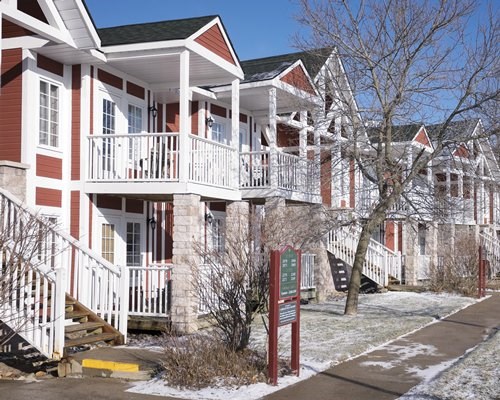Members of the troubled Carriage Hills and Carriage Ridge timeshares in Horseshoe Valley hope a court-appointed administrator will help address their financial and other concerns.
Justice Barbara Conway of the Ontario Superior Court of Justice appointed BDO Canada Limited as administrator of the timeshare operations and laid out a structure on May 15 which included the development of an exit strategy for owners wanting to relinquish their membership and be released of future obligations and oversee continuing operations.
The vacation units, part of Wyndham Destinations, were operating at a deficit from 2015 to 2018 and one-quarter of the 13,000 owners were in default with many owners abandoning their units and refusing to pay their share of operating costs, according to court documents.
The aging properties, which started development in 1997, are also incurring increasing capital expenditures.
The current pandemic, which has essentially left the units inactive until June, further complicated already strained finances.
“I think that the reality of this situation is a challenge for many owners," said concerned owner Julie Forestell. "Many think that there is money to be had as the property is appraised at millions.
"But we have a huge problem with expenses and cash flow,” she said. “I hope that, realistically, those who cannot afford their recurring fees, and those who no longer get use or enjoyment out of the timeshare will be able to exit," said Forestell.
“And I hope those who do get use out of it will be presented with some options. A win for all is what I hope for, although I'm not sure everyone will get what they want.”
Carriage Ridge has 78 units within three buildings on eight acres and Carriage Hills has 172 units in eight buildings on 20 acres running independently from Horseshoe Resort - a major ski and golf resort in Oro-Medonte Township.
As a non-share corporation, there was no other way for the timeshare association to deal with the issues outside of court-supervised restructuring, according to the documents.
Part of the problem has been that owners who no longer want to be involved in the timeshares had no way out but to sell their property. The filings indicate that here has been a declining interest in timeshare units.
Justice Conway also ordered that a consultative committee of at least five members be struck to consult with the administrator and that the administrator continue to manage the assets and carry on the business.
In November, more than 1,000 timeshare members gathered at Casino Rama to discuss their concerns about the operation.
In recent months members shared their information and concerns through a Facebook group.
In a blog posted on an owners’ group website, Karen Levins and Forestell wrote that it was a “difficult journey” to get to the point of the court order which doesn’t fully reflect the “anxious anticipation owners have for resolution to their long-standing timeshare woes.”
They wrote that there were growing concerns over rising fees and then the board’s announcement last fall that $200,000 of the budget was to be used to retain the services of a law firm and administrator in hopes of developing an exit strategy for owners wanting out and restructuring for those wanting to keep their timeshares.
They expressed frustration that no further information was shared and then the COVID-19 pandemic slowed everything down in March. The board then announced the court filings on April 30.
The members wrote they were concerned with some of the proposed provisions, including removal of the board’s obligation to hold annual general meetings and board elections and removing some of the owners’ rights including being able to call special meetings, take action by written ballot or remove any director.
They were also concerned that the focus became preserving the operations and exploring the potential to market, redevelop or restructure the timeshare operations and that it did not address their requests to prioritize an exit strategy.
A GoFundMe campaign successfully raised money for that growing group of members to hire its own legal counsel which conducted a review of the applications to reach consensus on the revised applications ahead of the May 15 court hearing via a Zoom video conference which attracted 1,000 members.
“By appointing BDO as Administrator to both (Carriage Hills) and (Carriage Ridge) resorts, owners are now represented by a third-party company who specializes in accountancy, taxation and consultancy on bankruptcy, insolvency and restructuring. The orders that were approved by the court set out specific direction to address owners’ concerns and in so doing, set an optimistic path forward,” Levins and Forestell wrote in the blog.
In the administrator’s communications to owners May 22, BDO indicated it would communicate with “members/owners throughout the course of its mandate to keep them appraised of salient steps and progress of the proceedings.”
Responding to concerns about costs, BDO indicated it had been paid about $112,000 by Carriage Hills association and $55,000 by Carriage Ridge association for its input into a 350-page report commissioned for the associations’ boards prior to the start of the court proceedings. Another $243,000 was spent on legal counsel by Carriage Hills and $79,000 by Carriage Ridge for the report.
BDO has also been paid $53,000 by Carriage Hills and $25,000 by Carriage Ridge, and legal counsel for the time spent in preparing for the court filing.



